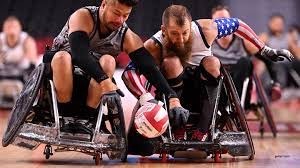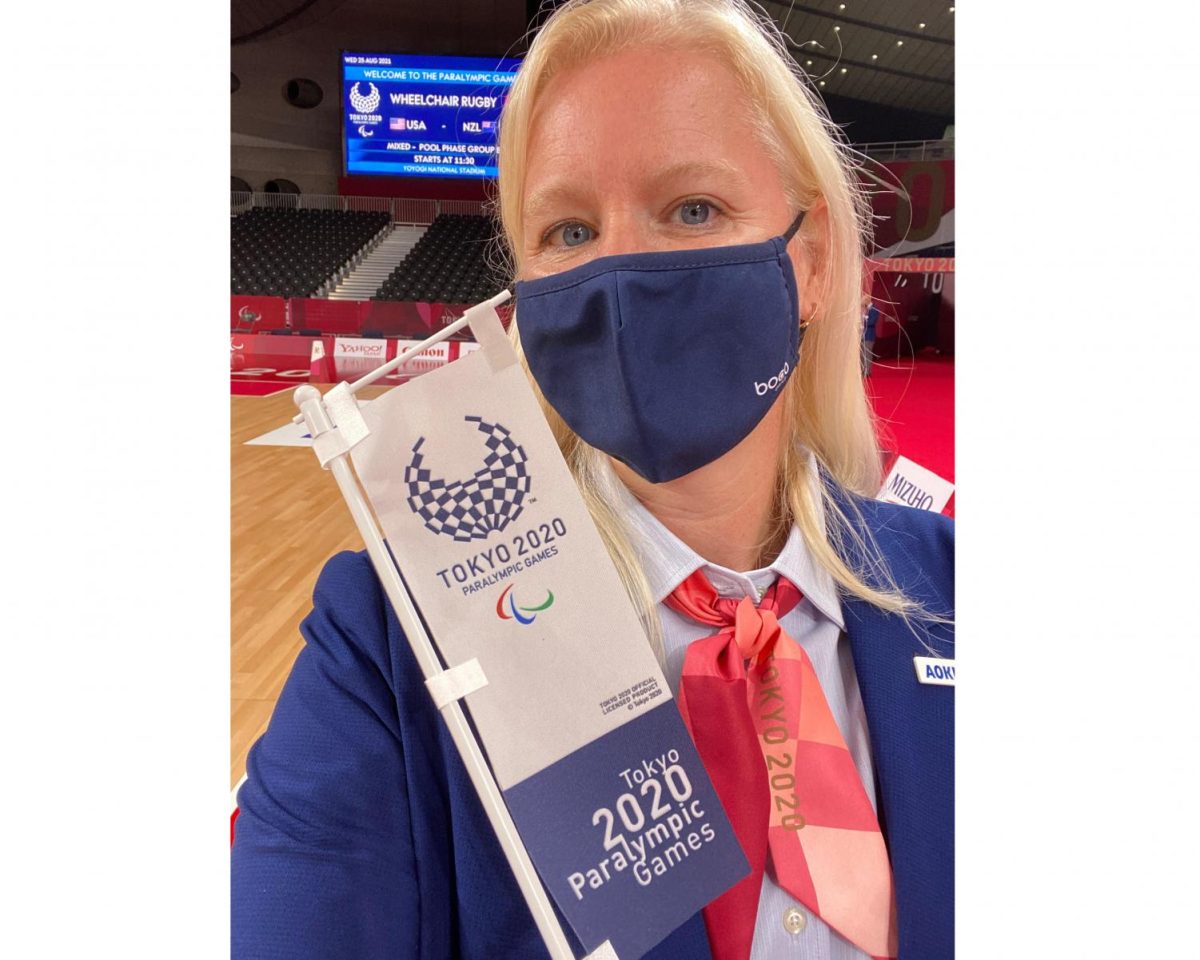Miami staffer serves as technical commissioner at Paralympics in Tokyo
Photo provided by Kerin Banfield
Oxford resident Kerin Banfield, was one of two people selected to be a technical commissioner for wheelchair rugby at the Tokyo Paralympic Games. Although the Games were held in 2021, they were named the “delayed 2020 Games” because of the COVID-19 pandemic.
September 10, 2021
For Miami University staff member Kerin Banfield, serving as a technical commissioner for wheelchair rugby at the Tokyo 2020 Paralympics was the experience of a lifetime.
“I think it was just really cool and still, almost unbelievable,” said Banfield. “I’m still kind of soaking in the fact that I was at the top level event in the world for this sport.”
Even though the games were postponed due to COVID-19, this year’s Paralympics have remained with the 2020 date. For this year’s games, eight wheelchair rugby teams traveled to Tokyo from Aug. 24 to Sept. 5. In the end, Great Britain took home the gold medal, with the U.S. winning silver and Japan taking the bronze.
According to the United States Wheelchair Rugby Association, wheelchair rugby is a mixed team sport for male and female quadriplegic athletes. The sport combines elements of rugby, basketball and handball. Players compete in teams of four to carry the ball across the opposing team’s goal line.
Wheelchair rugby players compete in manual wheelchairs specifically designed for the sport. Banfield said she traveled to Tokyo two days early to check that each player’s chair met the dimensions required to play at the Paralympics.
As a technical commissioner for wheelchair rugby, Banfield said she was responsible for a number of jobs. She was starting and stopping time devices, ensuring scores were accurate, managing benches and coaches, and serving as a resource for referees if there was an issue on the court. Banfield was able to work closely with all eight teams and their trainers as the games were in play.
Banfield, who works in Miami’s business and financial services office, first entered the world of wheelchair rugby when she served on the sports program board of directors for a rehabilitation facility in Indiana. A co-worker at the facility noted her passion for the sport and suggested that she attend a wheelchair rugby clinic in the summer of 2000, where she earned her certificate as a game official.
Banfield has been refereeing wheelchair rugby games around the U.S. ever since. In 2012, she attended a tournament in Brazil and began the process to become internationally certified as a game official. Banfield’s hard work paid off when she was accepted to go to the Paralympic Games in Tokyo.
Banfield was one of the two internationally certified wheelchair rugby officials to be selected for the role of technical commissioner.

Before her departing flight to Tokyo, Banfield and the other game officials were required to have two negative COVID-19 tests. While in Tokyo, Banfield said the game officials took tests daily and were asked to remain in two locations: their hotel and the game venue.
Although they were unable to sightsee around the city or utilize public transportation, Banfield said the hotel and venue staff brought Japanese culture to them.
“They would make little things (origami) and put it on the wall of our rooms and they would decorate little paper cranes on top of hand sanitizers everywhere. Even though we couldn’t do anything, it was still nice to get a lot of the culture and the flair and that stuff.”
In anticipation of the games, the Paralympics official site wrote, “All Japanese citizens, including Olympic and Paralympic volunteers, will employ their utmost resourcefulness as hosts to welcome visitors from around the world with the best Japanese omotenashi, or hospitality.”
Banfield recalled how local school children planted a row of morning glories for the Paralympic players and game officials leading up to the venue. She said that the game officials each plucked a few to bring to their space inside the venue as a reminder of the local culture and the spirit of the games.
Banfield said she worked with several of her fellow game officials at previous tournaments and had stayed in contact with them despite living on different continents.
“We still talked over social media and WhatsApp and instant messenger, but we weren’t actually seeing them or doing any of the rugby or anything. It was great just to see everybody there.”
According to Banfield, she and her fellow game officials made the most of their time together in Tokyo by soaking up sun on the rooftop of their hotel, despite COVID-19 restrictions.
“We would walk across that rooftop and it was hot there. So, one of the things we ordered on Amazon was a little kiddy pool that was inflatable. So, we blew that up and we put water in it and we’d sit outside on the rooftop and put our feet in.”
This year’s Paralympics marked 61 years since the first games in 1960. The next Paralympics will be in Beijing, China from March 4 to 13, 2022.














